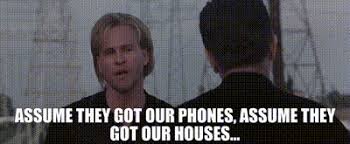Well, let me rephrase my observation.
1. Obviously the US military has dropped lots and lots of bombs on civilians. But that's the military, not the CIA -- and during an actual US war. Bombing Cambodia just isn't the same thing from a strategic perspective. First, it was secret because there wasn't a lot of surveillance equipment in or around Cambodia at the time. It wasn't hard to keep under wraps -- at least not compared to today. Second, it was in war. An unjust war, to be sure, but the fact that it was war localized the conflict. It wasn't as if random people in China or the Soviet Union had to be worried about suddenly being hit by a explosive device (except for the constant low-level fear of WWIII).
2. The CIA has done nasty deeds, but I can't imagine the CIA is cool with mass explosions in markets and such. Even if you go with a keys of power approach, and think of CIA decision makers as ruthless actors willing to kill if required, it doesn't make strategic sense. The CIA is supposed to be secret. Its job is not to spread fear or panic, as that undermines American interests. True, it has supported dictators who use fear and panic, but from a political/PR perspective, it's long been understood that the CIA propping up dictators isn't really the same as the dictators' own torture and terror. In part that's because the CIA only had limited control over the dictators it supported.
3. Cambodia was a long time ago. The American armed forces and intelligence community has learned lessons. As importantly, Cambodia was desperation. It didn't really start, I think, until after the war was looking dire for the U.S. I won't say it was a last gasp, but it was a product of the war effort going poorly.



